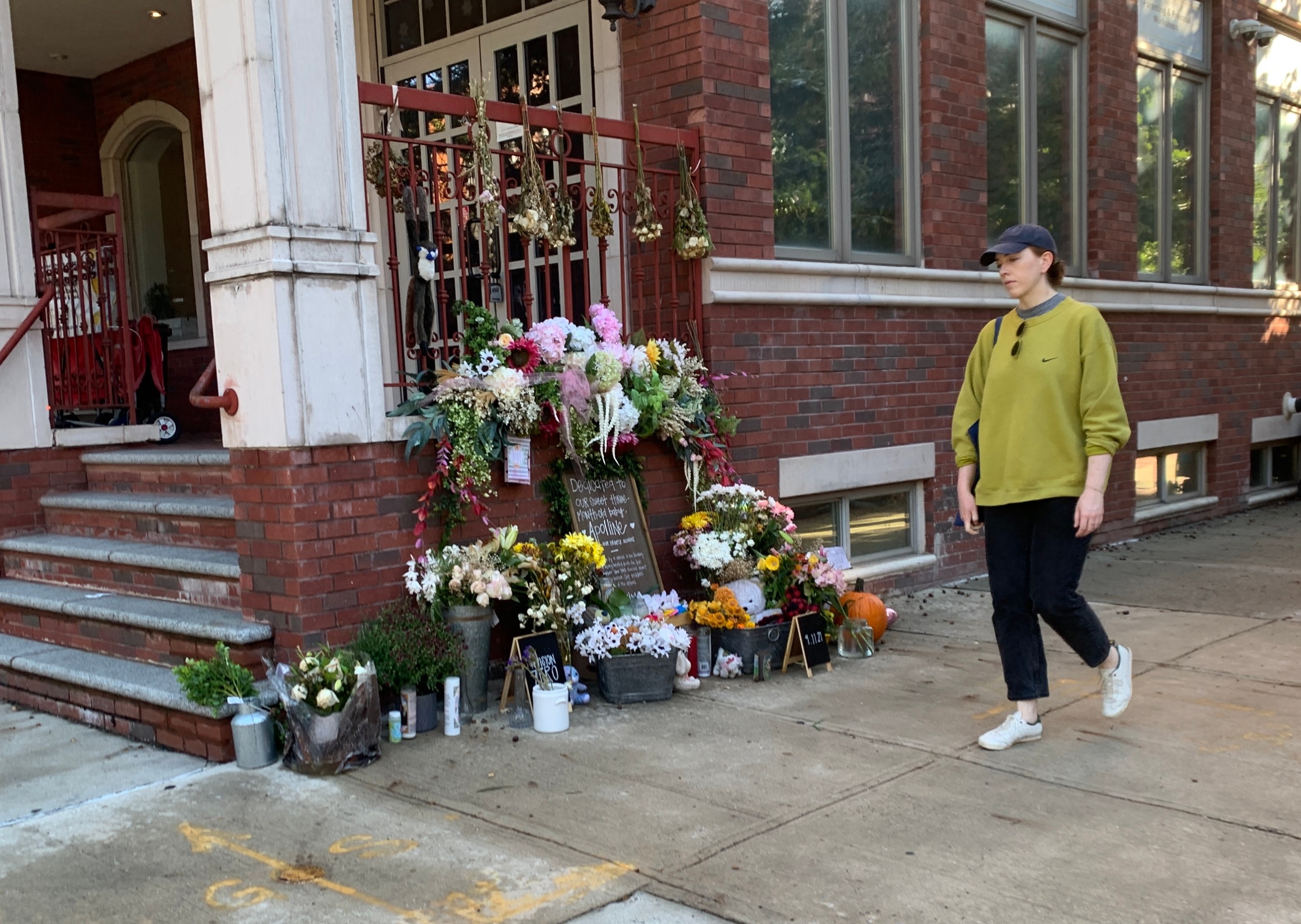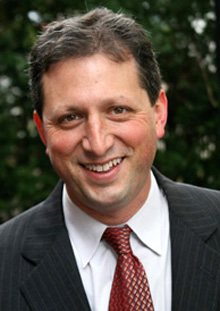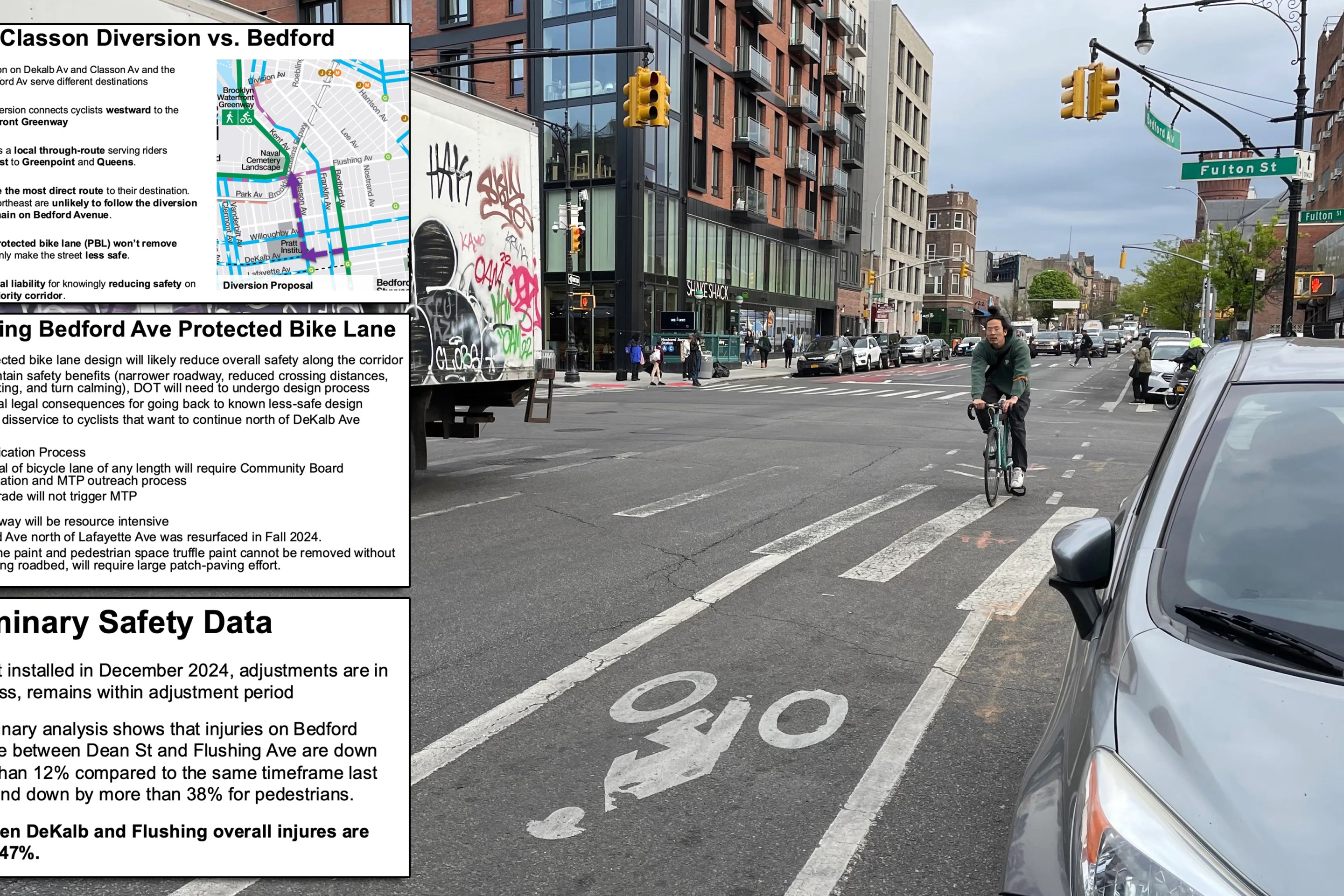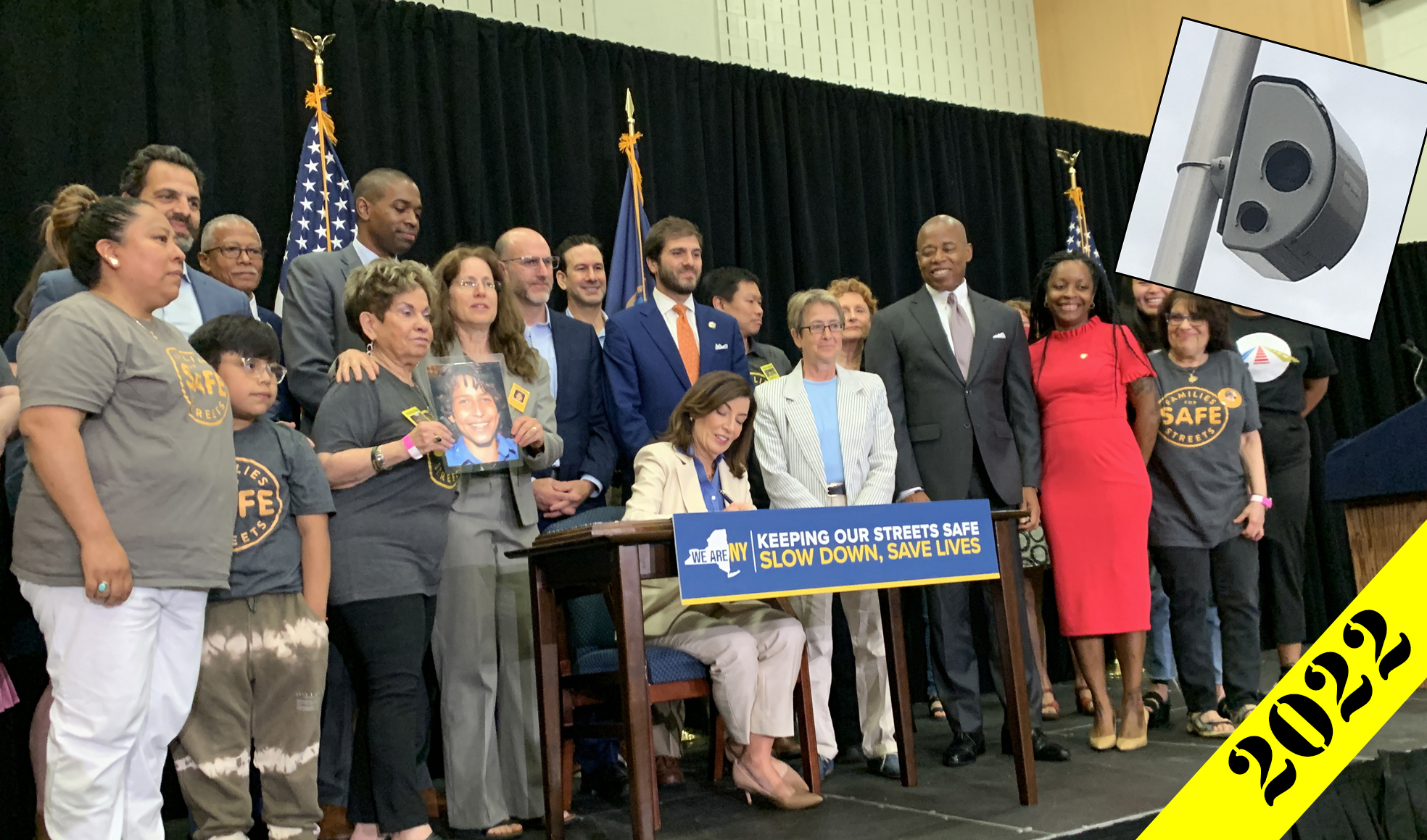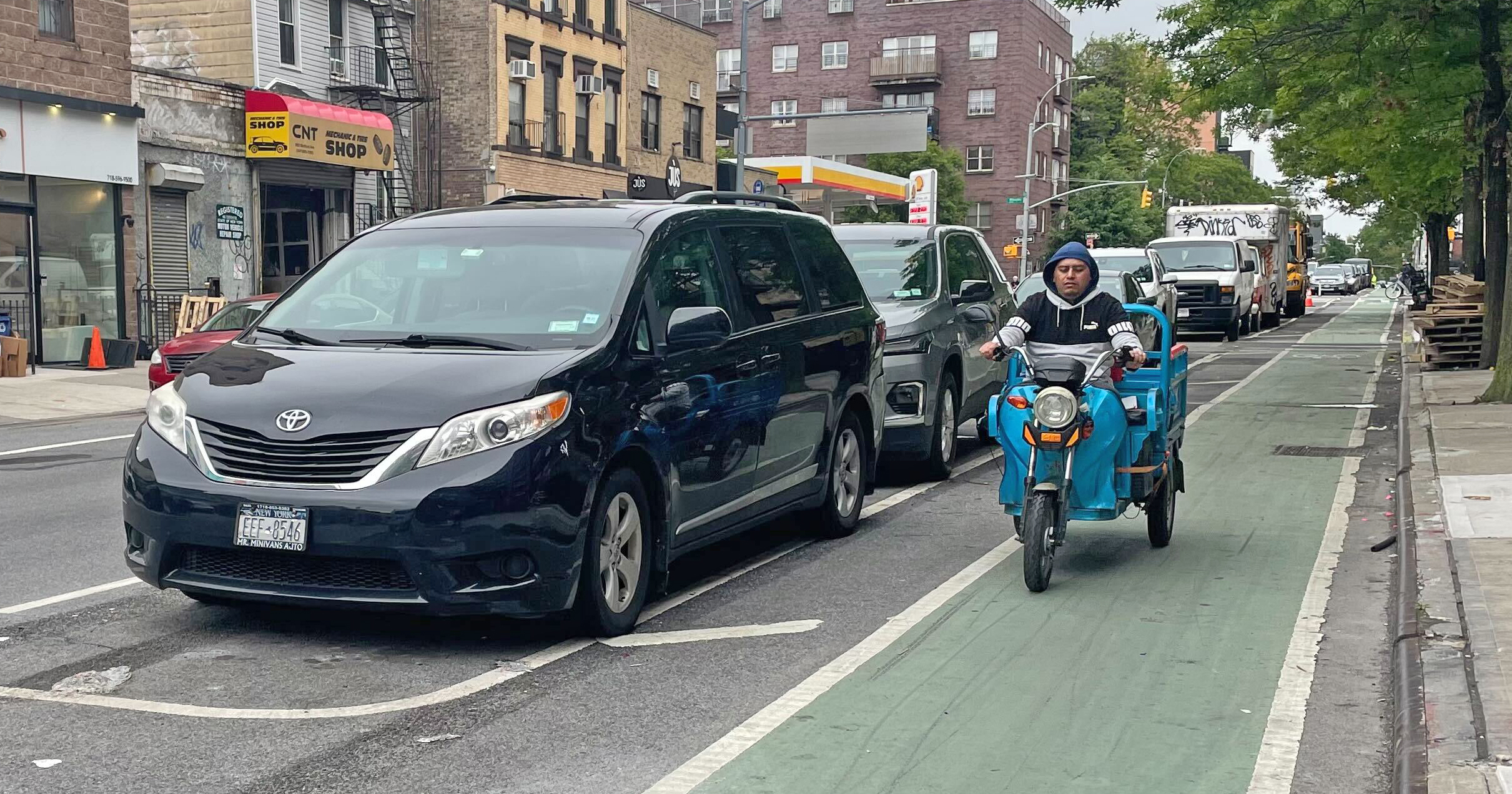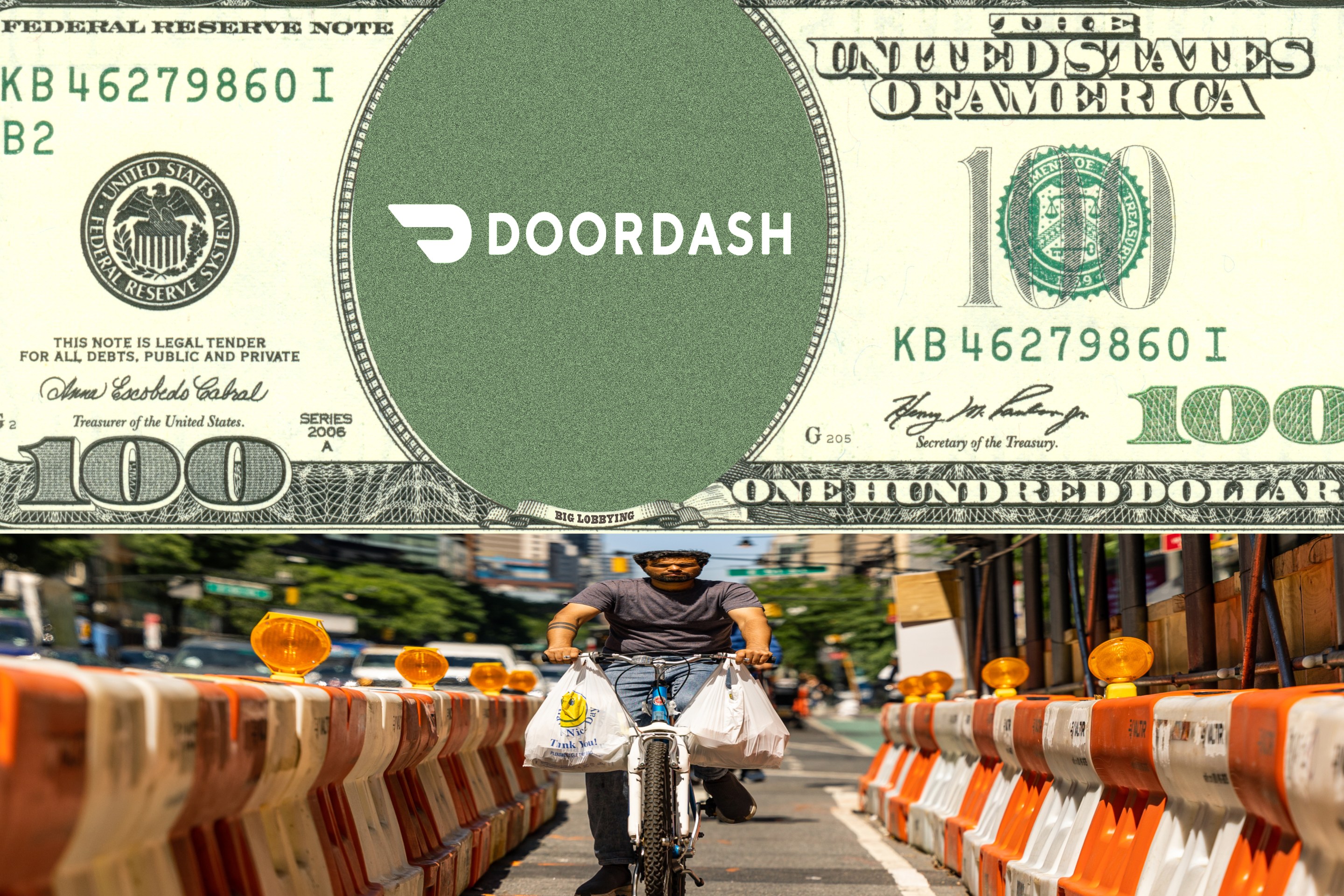On second thought...
In the wake of this week's revelation that a court-ordered safe-driving course failed to deter one of New York's most notorious reckless drivers before he crashed his Pennsylvania-plated Honda into a 3-month-old, politicians who have hailed such safety courses as a linchpin of their efforts to rid the streets of bad drivers are now admitting that they — and other pols who aren't them — need to do even more.
After Streetsblog reported the sordid saga of Tyrik Mott — who got 26 camera-issued speeding and red-light tickets after completing a court-ordered safe-driving course — Mayor de Blasio and Council Member Brad Lander rushed to spin the story away from the glaring failure of the course, which is at the center of the city's Dangerous Vehicle Abatement Program, a Lander bill that requires the most reckless drivers to undertake such a refresher lesson.
"Faced with such news," Lander began in an eight-tweet thread to respond to the public's obvious concerns about the courses, "it’s understandable that some might doubt the impact of an expanded reckless driver accountability program. While it’s not a panacea, a data-driven, scaled-sanction, public health approach can combat reckless driving and save lives. But we haven’t even started.
"There's good reason to think driver accountability courses can be an intervention for meaningful behavior change for many drivers. Not all, not enough, but many. Preliminary data from Red Hook Justice Center shows a 40-percent drop in speeding recidivism," Lander continued, linking to a 2015 Medium piece by Transportation Alternatives that suggested that the courses could start "a culture shift" that would reduce reckless driving. [Point of information: That shift has not happened.]
"We will, though, need stronger sanctions for those who don’t change their behavior after repeat reckless driving and opportunities," he continued. "I’m talking to [State Sen. Andrew] Gounardes about state legislation that would suspend licenses.
"The DVAP legislation builds a pathway toward collecting data on reckless driving for the very first time in New York City — or really anywhere — to allow us to build an effective program, without incarceration, in a way that prevents crashes and saves lives," Lander continued, promising for a second time that the next Council will add provisions to make the existing law better. "At the same time we need to redouble efforts to redesign our cities & streetscape to reduce reliance on cars, slow them down, and protect pedestrians and cyclists. It’s not either/or. All of it is necessary if we’re serious about doing all we can to save lives on our streets."
Mayor de Blasio also referred vaguely to "state action" in comments to Streetsblog this week, when the outlet asked if he had confidence in safe-driving classes in the wake of the Streetsblog revelation.
"There should be a more direct approach to impound a vehicle when someone has multiple infractions that are dangerous to their fellow New Yorkers," the mayor said. "The profound problem in my view is the state laws are not tough enough. ... In my view, if you blow through the red-light cameras enough times and you put people in danger, your car should be taken away with or without the safe driving course. Just go take it. But that requires a state law change to do.”
It's unclear what potential law the mayor is referring to. Camera-issued tickets do not currently count against a driver's license (even though just three of them would trigger a license suspension by the Department of Motor Vehicles), and even if they did, it's unclear if authorities could tow away a car based on a driver's record because the car might belong to someone else.
State Sen. Andrew Gounardes has a bill that would suspend the license of anyone receiving three moving violation tickets (not just speeding or red light tickets) in a 12-month period — but camera-issued tickets would not apply to the count. And even if a driver's license is suspended, that driver would likely keep driving unless his or her car is physically impounded; indeed, Tyrik Mott's license had been suspended at least four times. And he was, in fact, driving with a suspended license when he struck and killed Apolline Mong-Guillemin on Sept. 11.
Lander said he and Gounardes are talking about additional legislation. Gounardes could not be reached for comment.
On Thursday, Department of Transportation Commissioner Hank Gutman joined the chorus of policymakers who were quick to say that the Dangerous Vehicle Abatement Program is not a panacea — even as the agency is putting together the courses for launch later this month or early next.
"In terms of [planning] this course, we are taking advantage of the state-of-the-art work done by others all over the country," he said. "Does that mean that the course will fix every one of these problems? Obviously not, as we learned with that tragic incident in Brooklyn, which is very much front of mind. The answer is that there are a lot of people who would do better if you sensitize them, if you train them, if you educated them. How many? I don't know. But it's clearly a worthwhile effort and experience elsewhere shows that. And that's why we're committed to it. Will it solve all the problems? Will it change the approach of this particular individual? Obviously not, which is why we still need enforcement. [The driver in the Baby Apolline case] didn't have a license. It had been suspended multiple times. You need law enforcement and the sheriff to address that and we will do anything we can do to make that more effective."
All the talk of needing to do more is a stark reality check compared to what people were saying when the Dangerous Vehicle Abatement Program passed in 2020. For the first time, the city would hold repeat reckless drivers accountable. Anyone getting five camera-issued red-light tickets or 15 speeding tickets would have to take the course — or have his or her vehicle impounded. (Streetsblog has estimated that there are thousands of such drivers on the road right now.)
“What we’re doing here is groundbreaking," Lander said at the time.
"This program says you can’t use your car as a weapon — and if you do, you are going to have to change your behavior," Gutman said earlier this year.
The Department of Transportation has said that vehicles with five or more camera violations are almost twice as likely to be involved in an injury-causing crash. And drivers who’ve racked up 10 or more violations are nearly three times as likely to cause such crashes.
